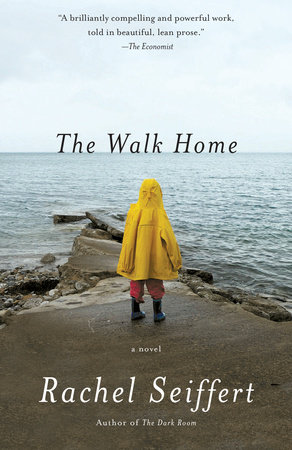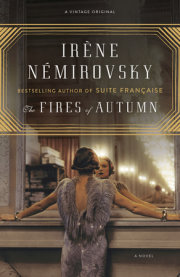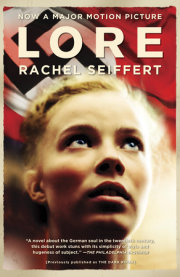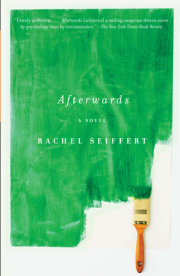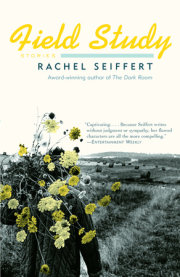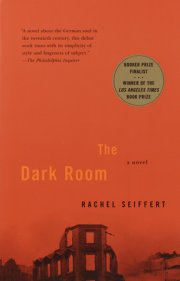3
The girl came as a shock. It took Brenda a while to adjust: a girl was the last thing she’d expected from Graham.
He was Brenda’s youngest, by a few years, a big baby with a big head; oh ho, a troop cometh, Malky said. Graham was a happy accident, who never stopped eating, never stopped growing. He was the quietest of their four sons, but also the tallest, and the widest. Overnight he couldn’t do up the buttons on his school shirts, his socks forever showing where his trousers were too short. Graham was a gentle lad, and a comfort, but a bit too backwards in coming forwards, so Brenda fretted about him some school mornings, after she’d dropped him at the gates: hard to see him sidelined at the railings till the bell went.
She and Malky used to talk about him last thing at night, in bed, lights out. Brenda said she watched all the other boys tearing about, and Graham standing there like he didn’t know how. Malky said he’d learn, give him time. So she’d held her tongue when Graham joined his first band.
It wasn’t that Brenda liked it, but it was just about the first thing he’d joined in with. And she knew plenty boys who’d done the same: her older sons’ school pals, and even Malky, before they were married and he’d settled to driving his cab. Malky reckoned it was just a scheme hazard, part of life if your life was lived in Drumchapel. He said boys will be boys, they’ll always want to belong, and he teased Brenda too: he said it was her blood coming through. Her Dad had been an Orangeman, true blue, forever nursing the wounds of his Free State youth; aw the faimly woes, they all lead back tae Ireland. But Malky was a sweet man, mostly, and he could tease without being hurtful, so Brenda trusted him when he told her flute bands were forever springing up and then folding, and Graham would grow out of it, same as he had.
Graham was thirteen when he started. He got himself a paper round to pay for his uniform, and Brenda didn’t know that it was worth it: all he did was bash the cymbals. But the months went by with him saving, and then the Glasgow Walk rolled round, as it always did, just ahead of Ulster; first Saturday in July she sent him off with a good breakfast, if not her blessing, and then Graham came home again towards tea time with his face all shining. Wide-shouldered and even taller in his new uniform trousers. He said how folk on the scheme had cheered them, and followed them all the way into town, and how the lodge they’d played for had paid them too, like no one had told him that’s how it worked. Graham saved his cut, in any case, and then he took on a second round, because he could manage two paper bags, one across each shoulder. He did that for months. Earned himself enough for a drum. Just second-hand, but he chose a good one, Malky said so: he remembered that much from his own band days.
The drum got Malky worried too, Brenda could see that, because he went out and made enquiries. He even went along to practice, to see where this was headed, and have a quiet word to Geordie. He was the bandmaster, and an Orangeman too, but one of the decent kind. Malky told Brenda his band had been going decades, no headcases allowed: Geordie only kept folk that could hold a melody down. He didn’t like a drum to be battered, the way they did in the blood-and-thunder bands, he said it should be played, and he taught Graham the difference. So for a while there, they breathed a bit easier.
Only it turned out Graham was quick to learn, and quick to get poached by other bands. It was a new lot he went to Tyrone with: none of them much over twenty, not one of them with an ounce of sense. The idiot bandmaster reckoned the Glasgow Walk was just a warm-up to get the marching season started. The real deal was over in Ireland on the Twelfth, so he’d talked some country lodge into hiring them, and it was a worry from the outset, the whole enterprise.
Brenda looked the town up in the atlas that used to be her father’s. It was just a thumbprint’s distance from Portadown, where they didn’t just remember the Battle of the Boyne each July, they fought it against their neighbours all year round. She told Malky it was too much like the place her Dad was born in; she’d grown up hearing all Papa Robert’s stories, of the Irish Civil War and what came after, when the Free State turned out to be anything but, and the family fled across the water. Plus she’d had two sons in the army, and endured their Ulster tours of duty, so there were just some place names that set Brenda on edge. The folk around those parts were unyielding. Not just the Catholics, with their residents’ groups, stirring the bloody soup, but her own kind too: staunch. No thought of surrender allowed there. They all had their reasons, turned rigid over centuries of grievance, but Brenda said if no one bent, then someone was bound to break, and she didn’t want it to be their boy.
She’d gone to meet Graham off the coach, when it drew up outside the snooker club, hours late, and it was bucketing too. He was a sight: looked like he’d spent the three days drinking himself red-eyed. Relief made Brenda run off at the mouth, and she gave the older boys in the band a piece of her mind, until they put her straight:
“A braw lassie wae red hair doon tae her bum, missus. Nothin tae dae wae us.”
It took days to get any sense out of Graham. He sat there with his dinner plates untouched, his eyes all small and sore in his big face. The phone kept going, every few hours, call box calls from far-off Tyrone, and Graham lay on the sofa pining after the next one, a great soft lump. Young love. Malky said it would pass, give it a month. But one morning, a bit more than a month later, Graham was gone. His bed was made, and a note taped to the kettle: back themorrow. And he was too, with Lindsey, who was seventeen and six weeks pregnant.
It floored her; Brenda wasn’t going to deny it. But there they were, standing hand in hand in her kitchen, both smiling so much she could feel the happiness off them, like heat.
Copyright © 2014 by Rachel Seiffert. All rights reserved. No part of this excerpt may be reproduced or reprinted without permission in writing from the publisher.

